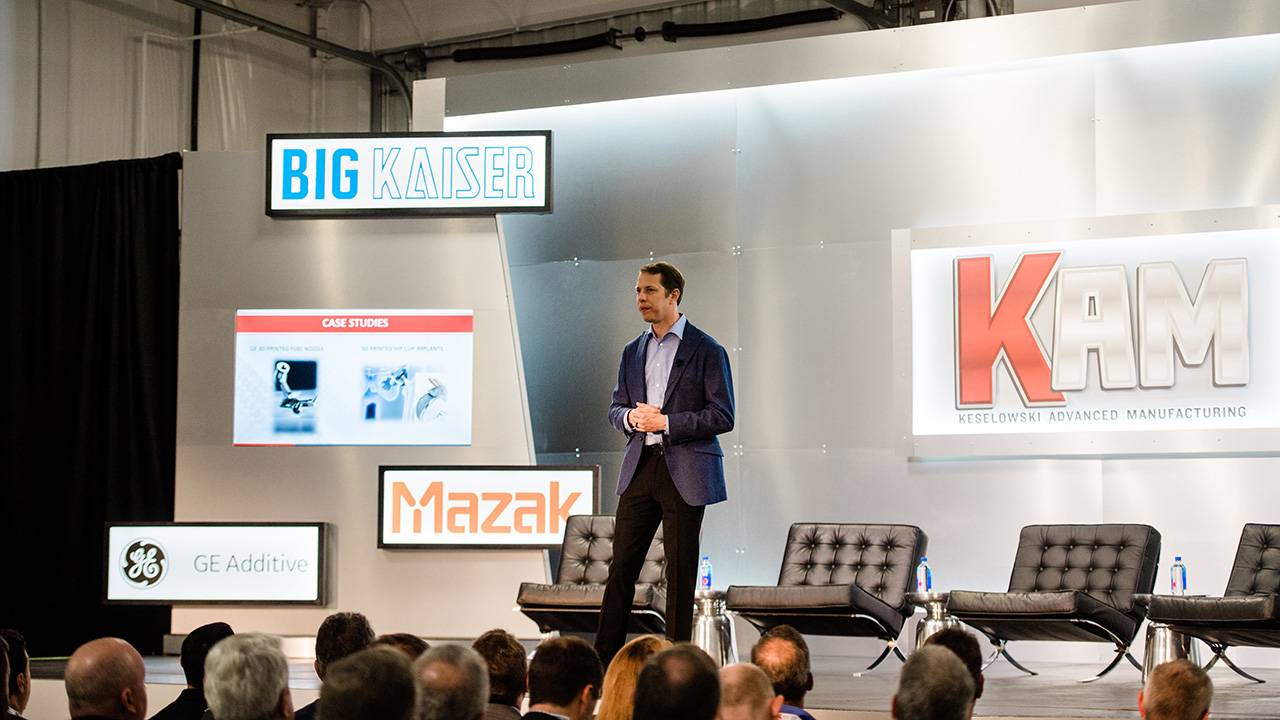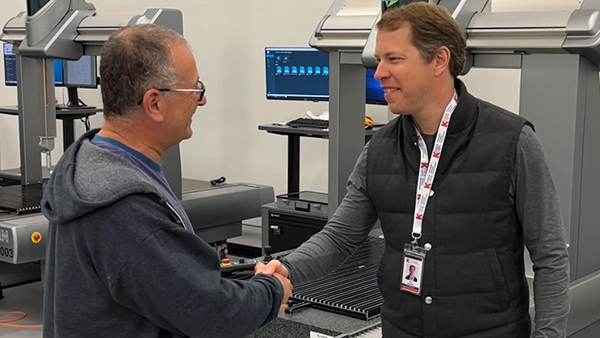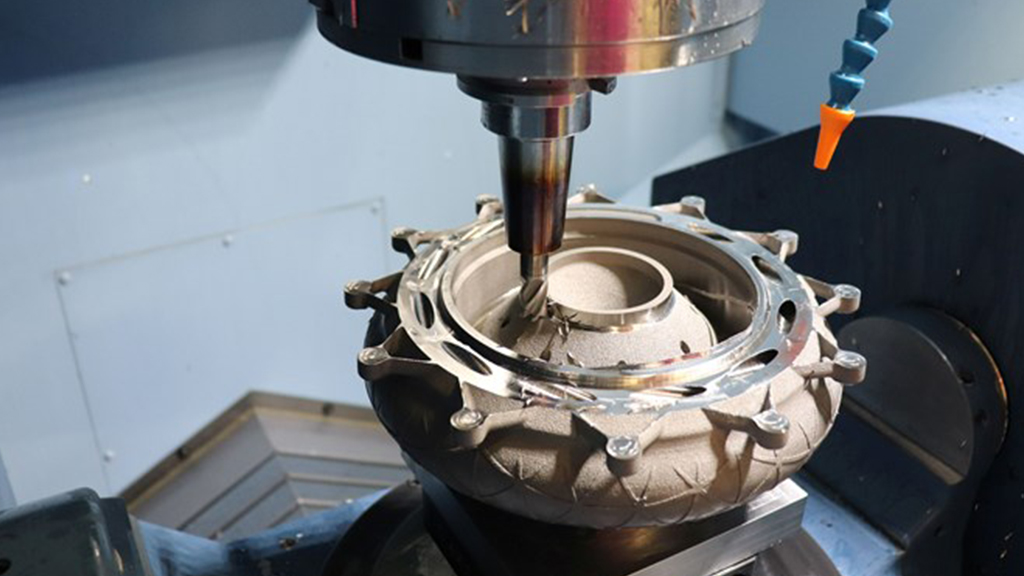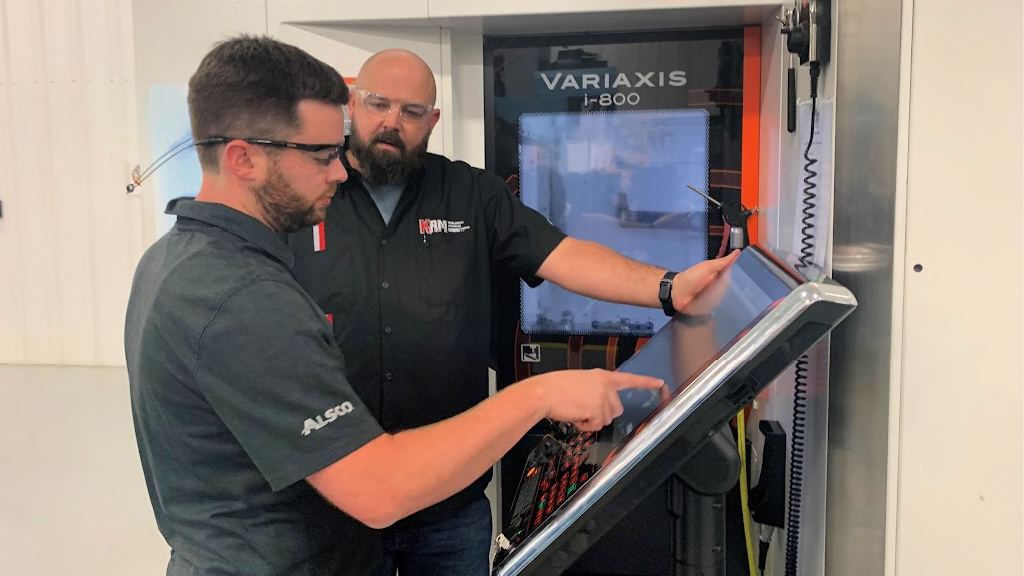Brad Keselowski unveiled his long-anticipated new business Thursday, which is designed to be “at the forefront of the fourth industrial revolution.”
Keselowski Advanced Manufacturing, which will be housed in the 70,000-square-foot shop that once was the base of the 2012 Cup champion’s NASCAR truck team, will be a hybrid manufacturing factory that Keselowski said will help build “the world of the future.”
In a release, Keselowski said “tens of millions of dollars” would be invested in “equipment and expertise.” The company has a staff of 30 with plans to expand to 100 by the end of the year.
Keselowski told reporters that he has no investors, and it’s all his money. He said he didn’t leverage the spend by going into debt.
“I already owned the facility so that was advantageous,” he said. “I liquidated the truck series assets, and that helped to pay for this. I wanted to do it myself so I could go fast.
“I’ve been very frugal for a number of years. I didn’t put my house on the line. There are some risks, but you have to believe in something. I wasn’t going to just retire from racing and do nothing. The opportunity was right. I feel I hit the market perfectly.”
Keselowski is hoping for a return on the investment within five to 10 years. He envisions it as possibly providing an avenue for staying involved in NASCAR after his driving career ends, perhaps as a team owner (though he also cautioned he “didn’t want to get too far over his skis” on the future).
“I feel like I’m planting a really nice seed, so we’ll see where it goes,” he said.
He said the business also wouldn’t curtail his driving career, where he said winning another Cup championship remains a major goal.
“I need a job to pay for it, especially for the next few years,” he said. “I don’t think it affects my timeline of being a competitor on the NASCAR level.
“In some ways, I hope it potentially extends it as we see the market shift with drivers in a position where they can no longer really be paid. Or sometimes they really have to pay to race. I hope it can extend that because I’ll be immune to it.”
Partnering with several equipment and technology companies, KAM will focus on “additive manufacturing,” also known as 3D printing, that can bend and form metal into parts.
“In North America, no one will offer hybrid manufacturing on the scale we will,” Keselowski during a 20-minute presentation to media and industry members.
Though there could be motorsports applications, Keselowski said the vast majority of its clients will be outside racing. “If this only serves motorsports, it’ll be a tremendous failure,” he said. “I’m sure it’ll dabble some.”
He does have some NASCAR faces on his payroll already, though, hiring former Roush Fenway Racing crew chief and executive Robbie Reiser as production manager.
“His ability to build teams at the NASCAR level is a direct parallel to what we’re looking to do here,” Keselowski said of Reiser.
Keselowski said the company plans to hunt the NASCAR job market for “a lot of people behind scenes in engineering and manufacturing talent. That’s part of the reason I liked this sector. The talent pool here is phenomenal. As the motorsports sector continues to change, I expect the pool to overflow and find top talent.”
The Statesville location also is attractive because of its adjacent airport, which allows for swift transport in an industry with on-demand needs.
Keselowski said his company will focus on “new and exciting products the world has never seen” in industry sectors such as aerospace, nanotech, biotech and quantum computing that he believes will lead the fourth industrial revolution. Keselowski said KAM already has aerospace and Defense customers and hopes to branch into automotive and medical contracts.
Keselowski, who turns 35 next month, said his background as a NASCAR driver makes him “perfectly positioned to lead an advanced manufacturing company” because his “years in motorsports have taught several lessons in the harshest of environments where failure to perform could mean not only your job but also your life.” He learned more about advanced machines and tools from his exposure in NASCAR, which has become heavily focused on engineering over the last 15 years.
As a driver at “the top of the fastest and most rigorous feedback loop in the world,” Keselowski said he watched how Team Penske’s 500-plus employees responded to solving racing problems and wanted to apply it to manufacturing.
“Teams meet massive challenges with speed, precision and reliability,” Keselowski said. “So I asked, ‘What if this was available outside motorsports? What could these technologies and talents achieve?’”
Keselowski, whose grandfather spent World War II making military drill bits, said he was inspired by the manufacturing background of his Michigan-based family.
“My vision of KAM was born of fire and competition, and the ability to act fast,” said Keselowski, whose family owned team raced its own Late Models.
Keselowski traveled through Europe last summer to learn about “factories of the future” that rely on heavy automation, robotics, cloud computing and “the Internet of things” for building.
“All of those maximize communication and efficiencies,” Keselowski said. “All of those tools will be used in the facility today.”








